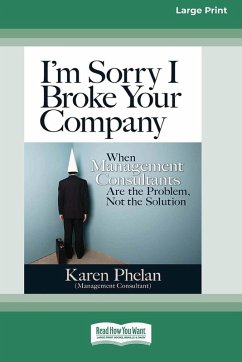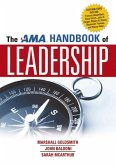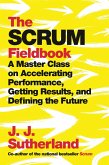Karen Phelan is really sorry. She had the best of intentions. She got into consulting because she wanted to help. She tried hard to optimize processes, develop measures, and manage human assets - to do business by the numbers, the management consultant way. The only problem, she found, is that businesses are run by people, not formulas and score...
Bitte wählen Sie Ihr Anliegen aus.
Rechnungen
Retourenschein anfordern
Bestellstatus
Storno








